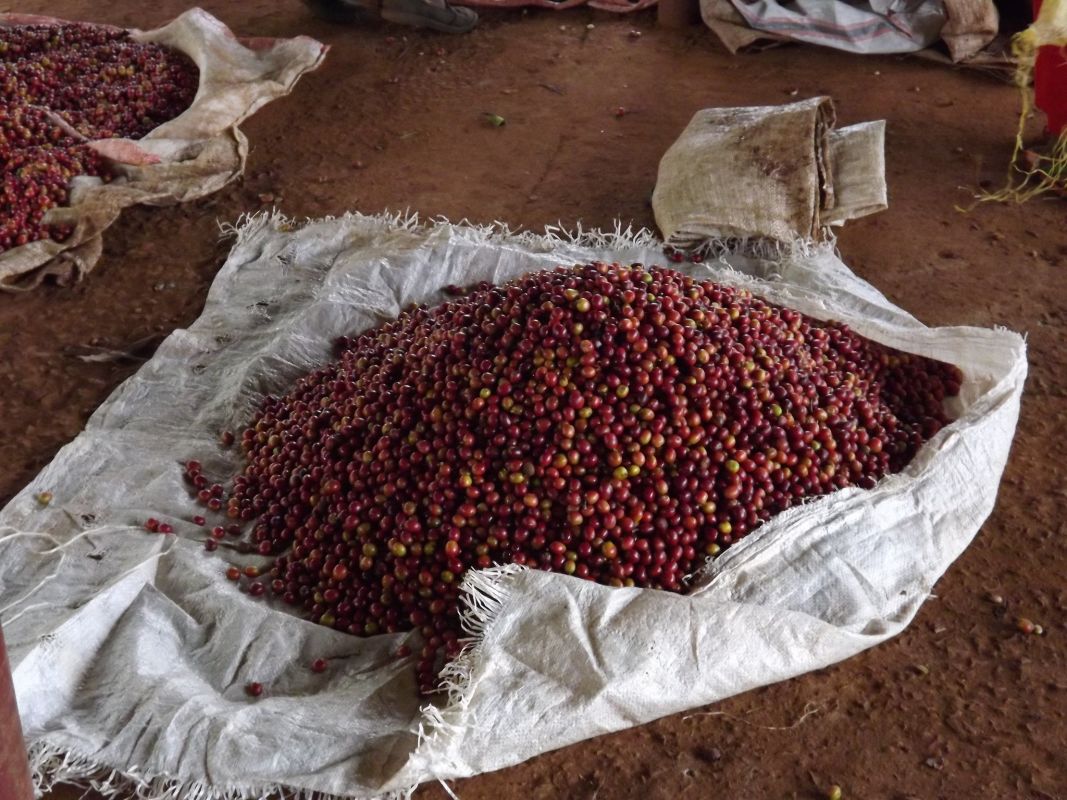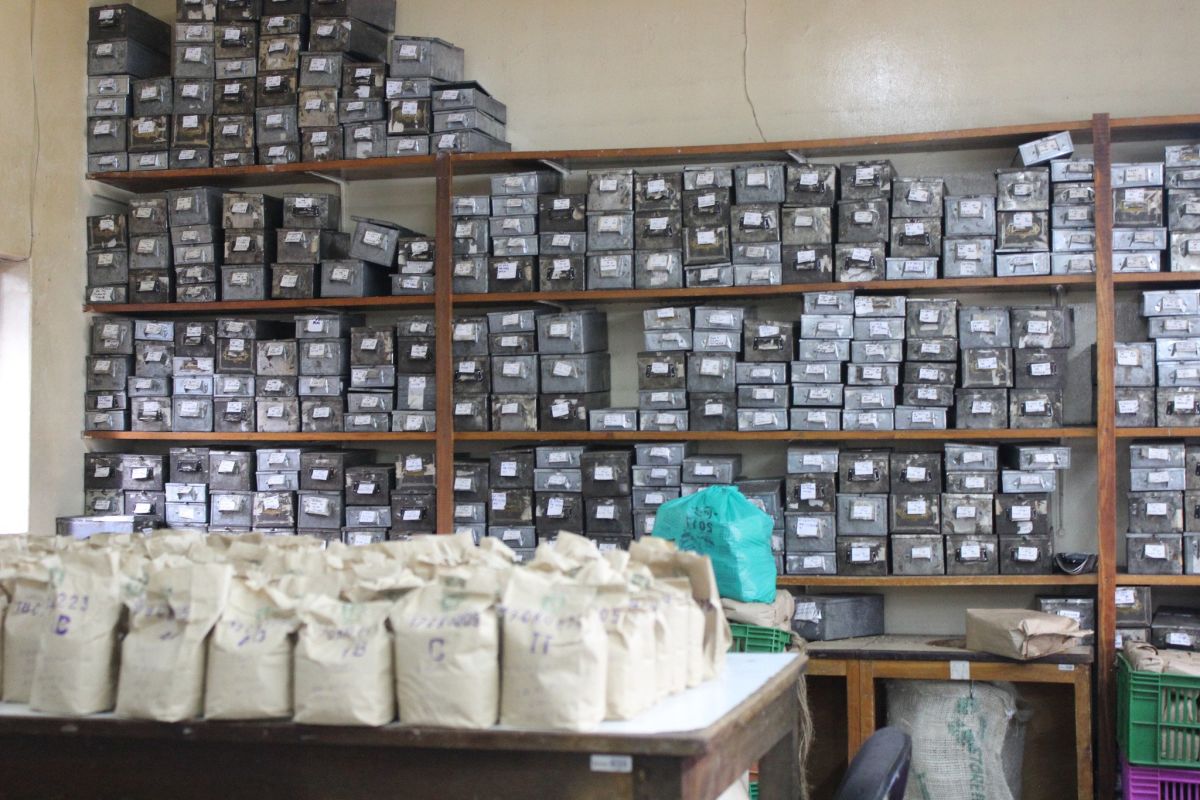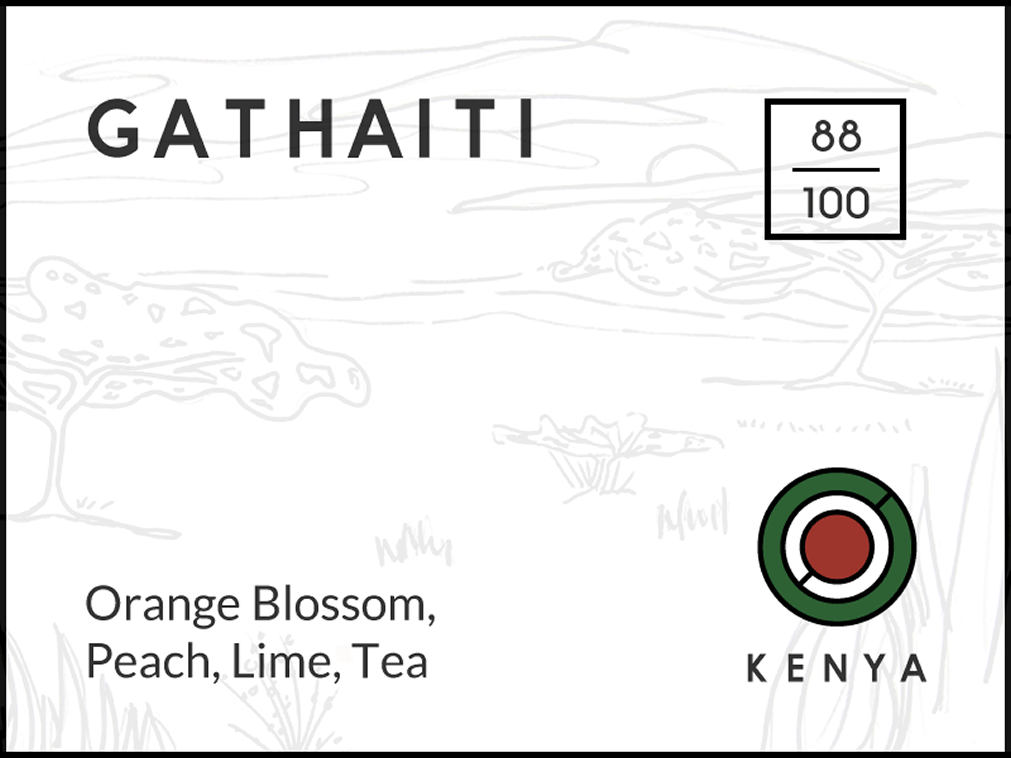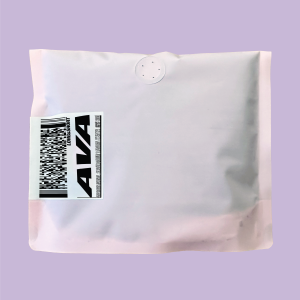Named after its community
Gathaithi is a community coffee created by the Gathaithi Farmer’s Cooperative Society and is a collective of farms from the Nyeri district of the Central province in Kenya. Geographically it’s 160km to the north of the capital, Nairobi.
Funds generated from each year’s harvest are collected to go towards a fund for financing school fees and emergencies. Additional funding comes from Coffee Management Services (CMS) a service provider who also operate in other African countries such as Rwanda and Tanzania. They help to boost coffee quality and productivity through specialised farmer training, a team of agronomists, and provide the latest information on sustainable farming.

Kenya’s famed varietals
Known for their range of ‘SL’ varietals which were originally created by Scott Labs in the 1930s, these indigenous coffee varietals of Kenya are now grown in other parts of the world. In a similar vein to how Gesha has been successfully exported to parts of Central and South America (where SLs have also found themselves in various experiments), the SL varieties are certainly ones to watch out for in the burgeoning Asian coffee market. SL28 is found here which is a varietal most often used for higher altitudes and is known for its fruity complexity, with many claiming them to have the most valued cup quality — including us!
The coffee at Gathaithi undergoes a strenuous process. After pulping, the coffee is fermented overnight to break down the sugars, before traveling through to the soaking tank where the coffee is carefully cleaned, soaked and spread out on the raised drying tables. Time on the drying tables depends on climate, ambient temperature and total production volume undergoing processing. Drying can take from 7 to 15 days in total. Continuous sorting and hand turning of the parchment takes place throughout the drying process.
A coffee that pays
By paying the producers some of the highest returns for their coffee the objectives from CMS become more possible. Establishing a transparent, trust based relationship with smallholder farmers, helps to support sustained industry growth throughout the country, and continue to elevate the standards of quality coffee produced in Kenya.
Can you taste it?
The SL28 brings with it a clarity in acidity and fruitiness that is unique to the Kenyan SL-28 varietal and somewhat unlike anything else. There’s an amalgamation of fruits including peach, orange, apple, red berries — you’ll probably end up telling us about other notes you may have found! The body is quite thin and tea-like which adds to the overall sense of a very clean coffee.
Our recommendation
Again with the Ato and most funky naturals from Africa, this is almost always better black on espresso or filter. Our preference is the V60 with the paper filter (we use the natural filters, rinsed twice before use) to help bring the clarity in flavour that this coffee has.









Reviews
There are no reviews yet.